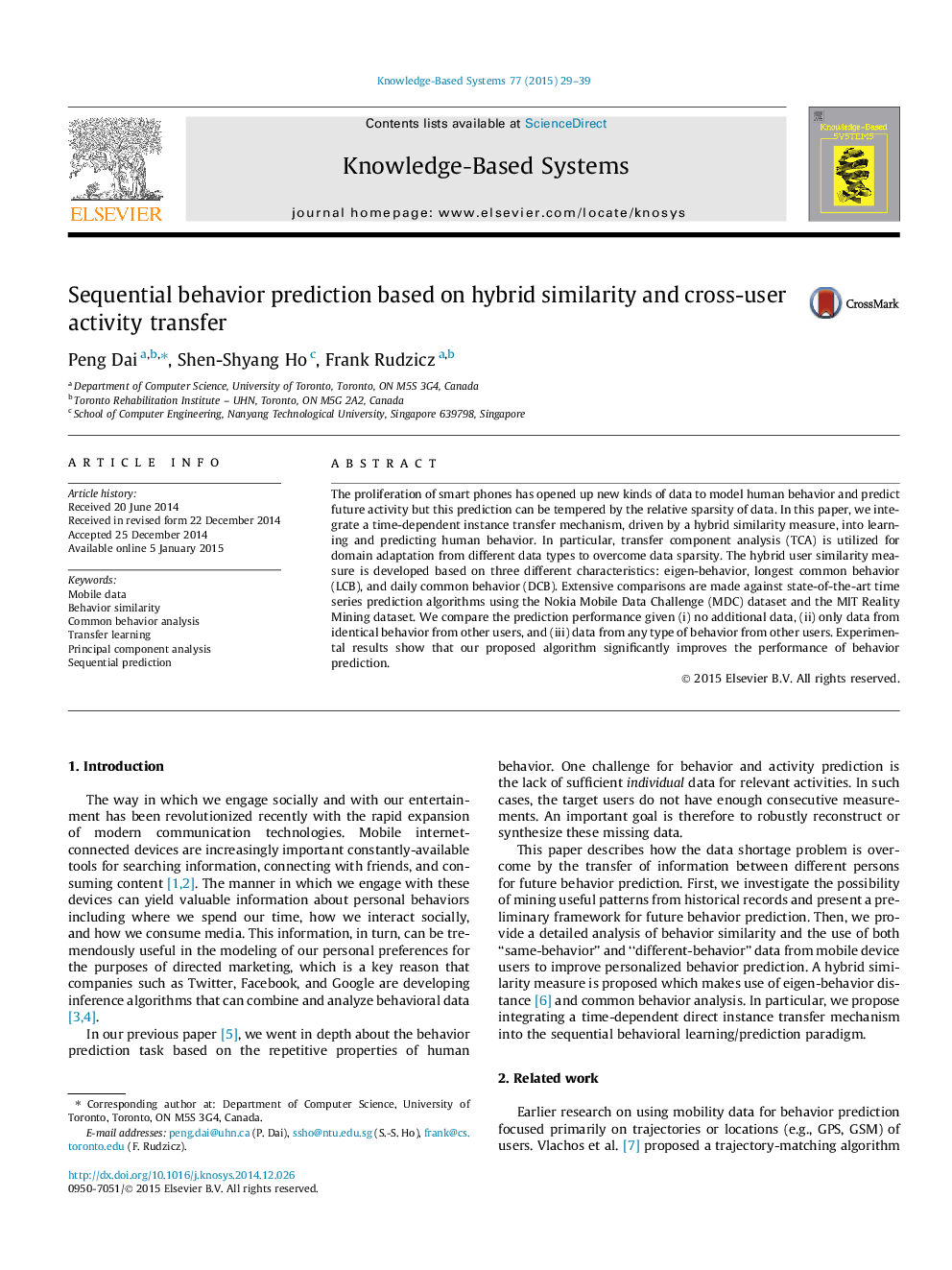| Article ID | Journal | Published Year | Pages | File Type |
|---|---|---|---|---|
| 404936 | Knowledge-Based Systems | 2015 | 11 Pages |
•Linear algebraic modeling of human behavior with mobile devices.•Improving behavior prediction by transferring knowledge from different users.•A hybrid similarity measure based on PCA and longest/daily common behavior.
The proliferation of smart phones has opened up new kinds of data to model human behavior and predict future activity but this prediction can be tempered by the relative sparsity of data. In this paper, we integrate a time-dependent instance transfer mechanism, driven by a hybrid similarity measure, into learning and predicting human behavior. In particular, transfer component analysis (TCA) is utilized for domain adaptation from different data types to overcome data sparsity. The hybrid user similarity measure is developed based on three different characteristics: eigen-behavior, longest common behavior (LCB), and daily common behavior (DCB). Extensive comparisons are made against state-of-the-art time series prediction algorithms using the Nokia Mobile Data Challenge (MDC) dataset and the MIT Reality Mining dataset. We compare the prediction performance given (i) no additional data, (ii) only data from identical behavior from other users, and (iii) data from any type of behavior from other users. Experimental results show that our proposed algorithm significantly improves the performance of behavior prediction.
